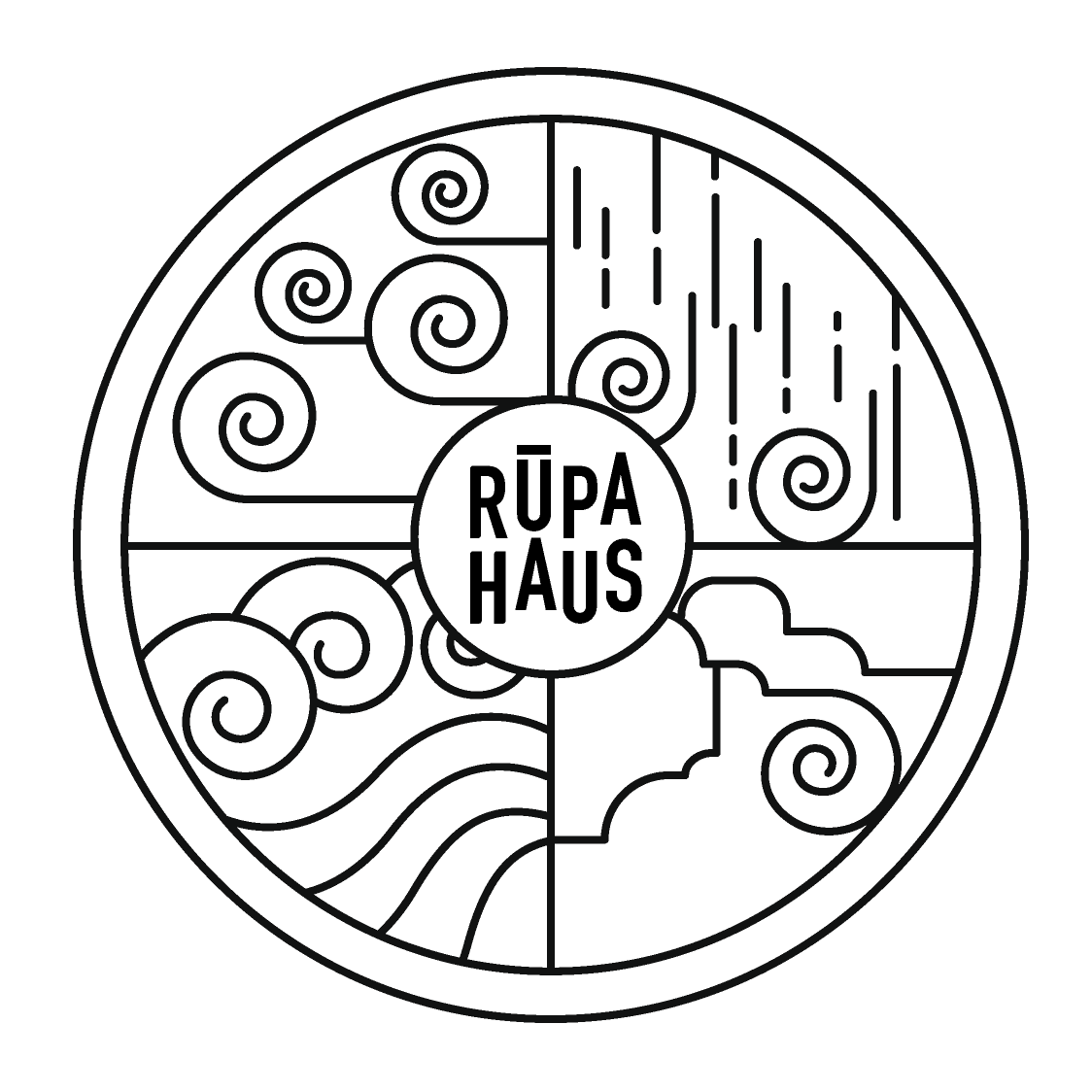Ethics & Sustainability
Responsibility in practice, not performance.
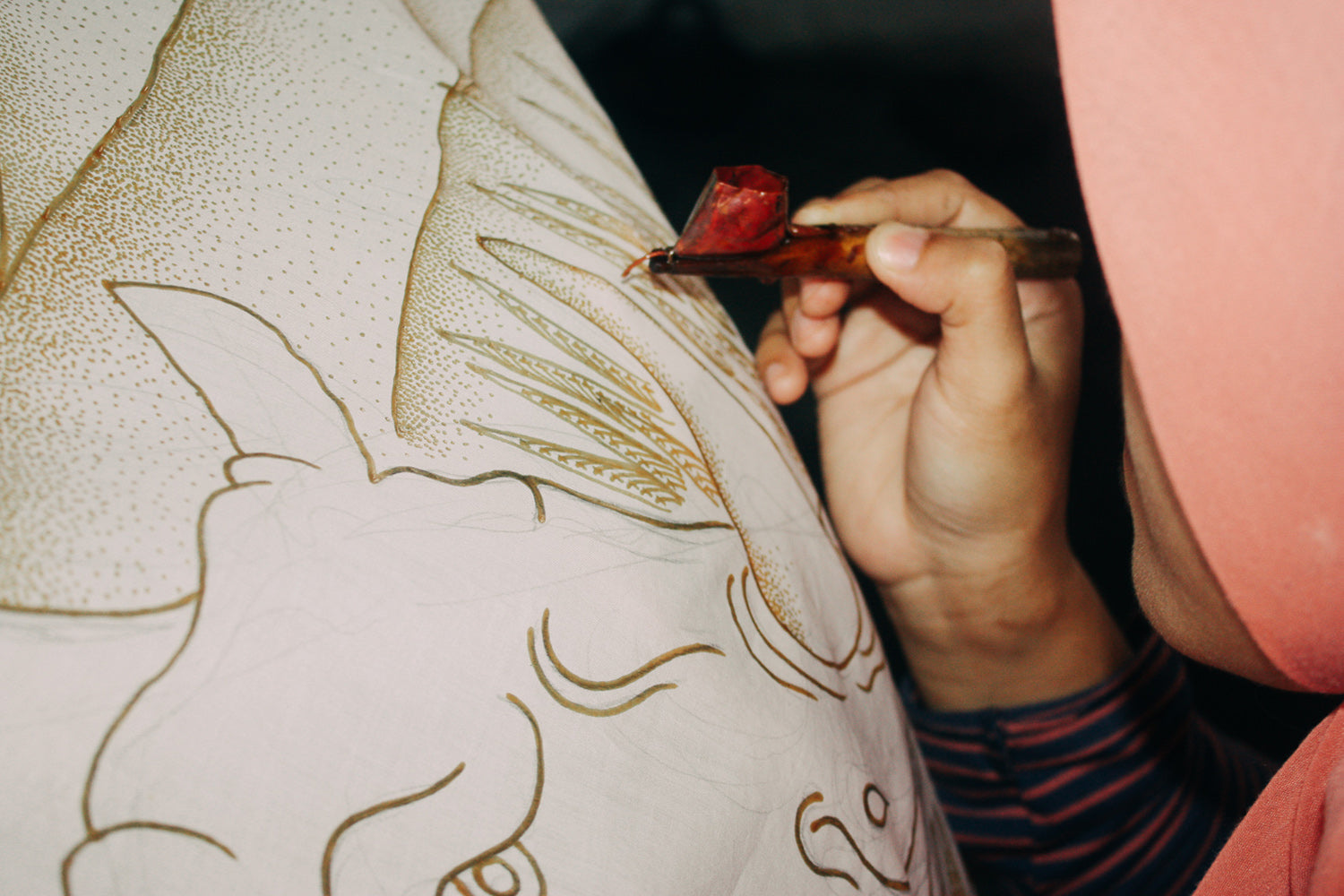
People
Fair Work Practices & Partnerships
We work directly with artisan communities across Indonesia as independent partners – who set their own rates and timelines, retaining control over their craft and livelihoods.
Through transparent pricing and direct payment, our partners earn on average six times above local minimum wages.
Each year, 5% of our revenue is reinvested into the communities we work with.
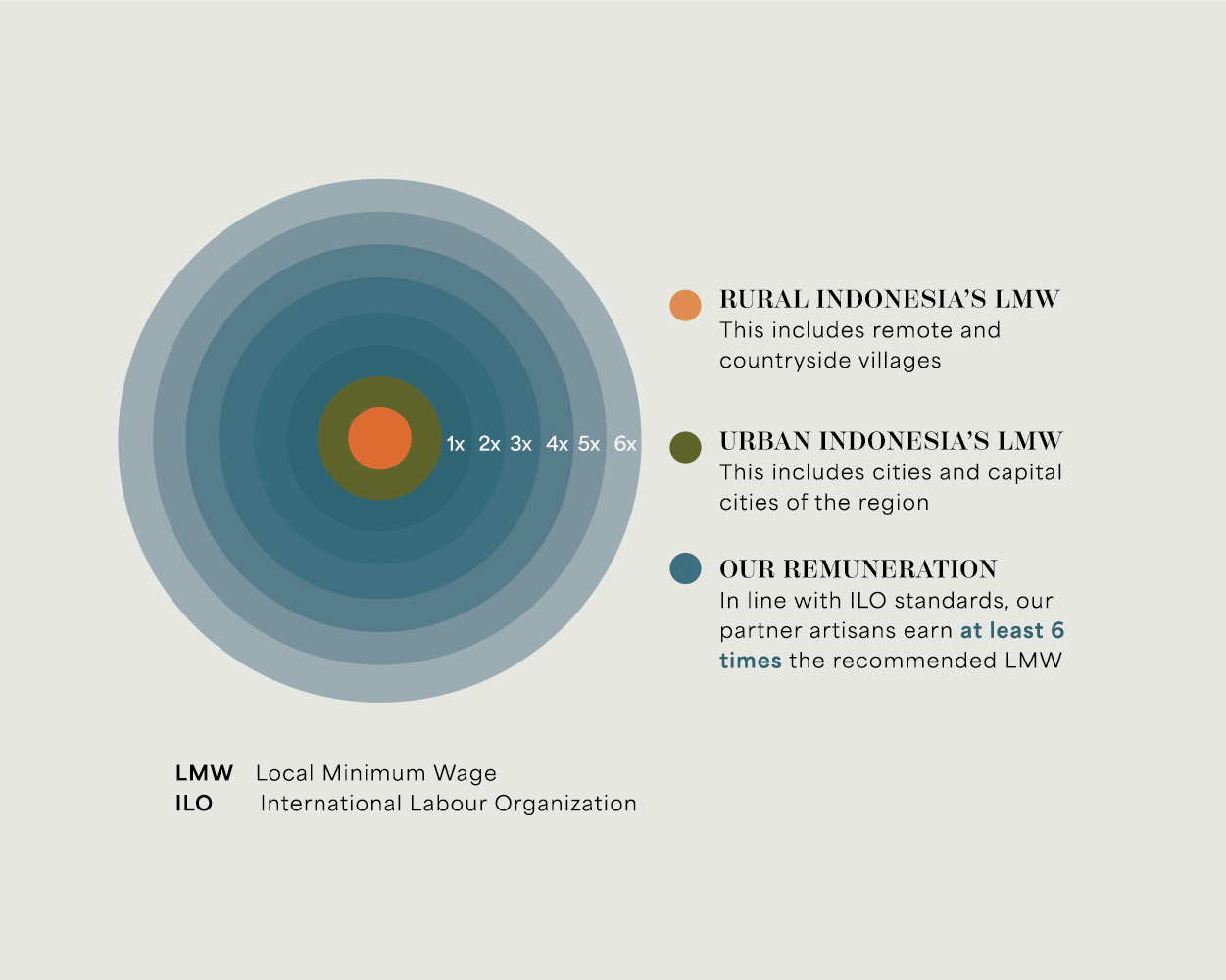
People
Legal Minimum Wage
Legal minimum wages in Indonesia are calculated using the Decent Living Needs Index (Kebutuhan Hidup Layak) and inflation rates.
We calculate an average across artisan regions and use this as our baseline for fair pay. We calculated the average from all of our artisans cities and use it as the baseline value.
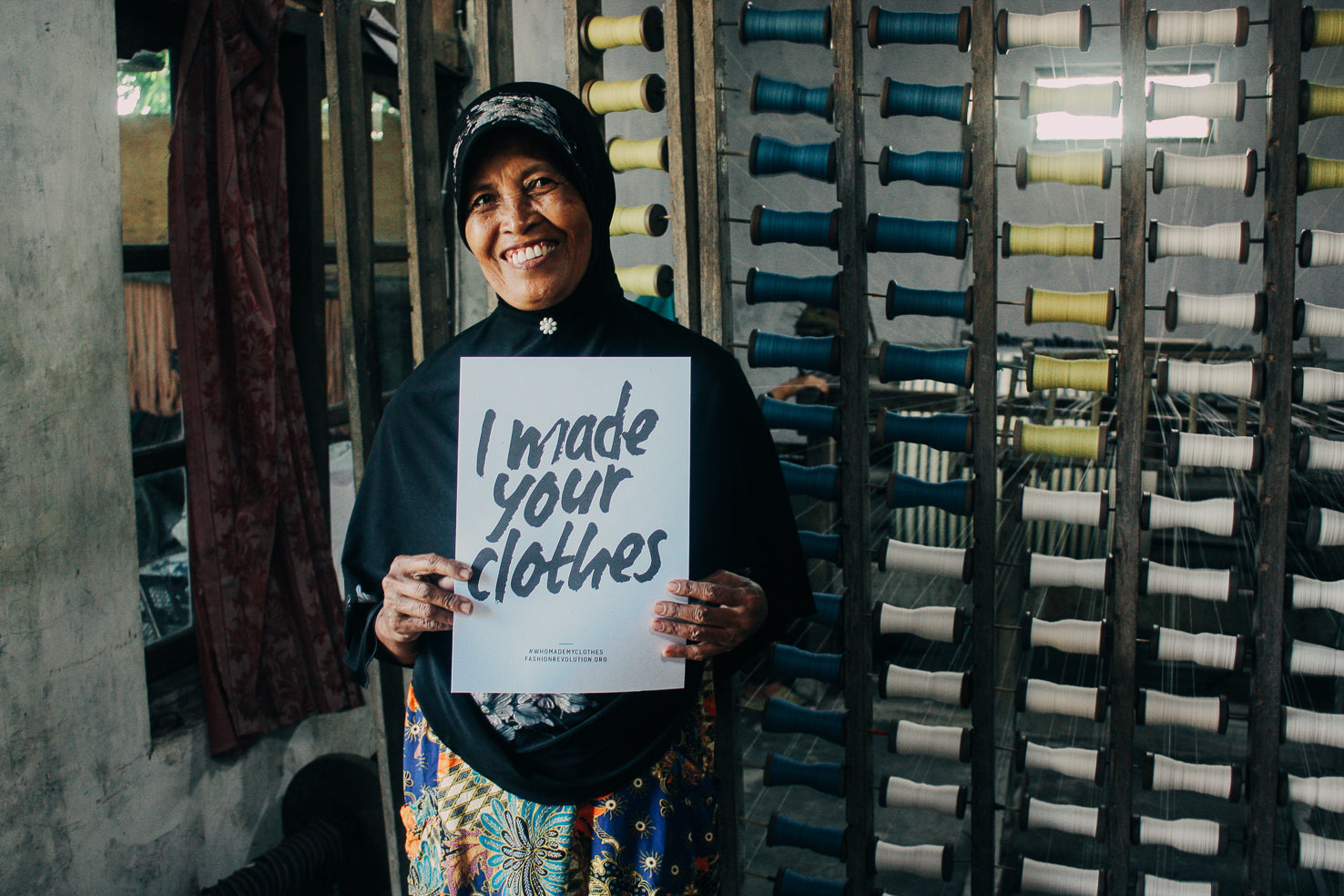
People
Creating Opportunity Through Craft
In rural Indonesia, home-based textile work allows women to earn fairly while balancing family life.
This supports independence, continuity of craft, and long-term opportunity — without requiring migration or factory work.



People
Fair Work Practices & Partnerships
We work directly with artisan communities across Indonesia as independent partners – who set their own rates and timelines, retaining control over their craft and livelihoods.
Through transparent pricing and direct payment, our partners earn on average six times above local minimum wages.
Each year, 5% of our revenue is reinvested into the communities we work with.
People
Legal Minimum Wage
Legal minimum wages in Indonesia are calculated using the Decent Living Needs Index (Kebutuhan Hidup Layak) and inflation rates.
We calculate an average across artisan regions and use this as our baseline for fair pay. We calculated the average from all of our artisans cities and use it as the baseline value.
People
Creating Opportunity Through Craft
In rural Indonesia, home-based textile work allows women to earn fairly while balancing family life.
This supports independence, continuity of craft, and long-term opportunity — without requiring migration or factory work.
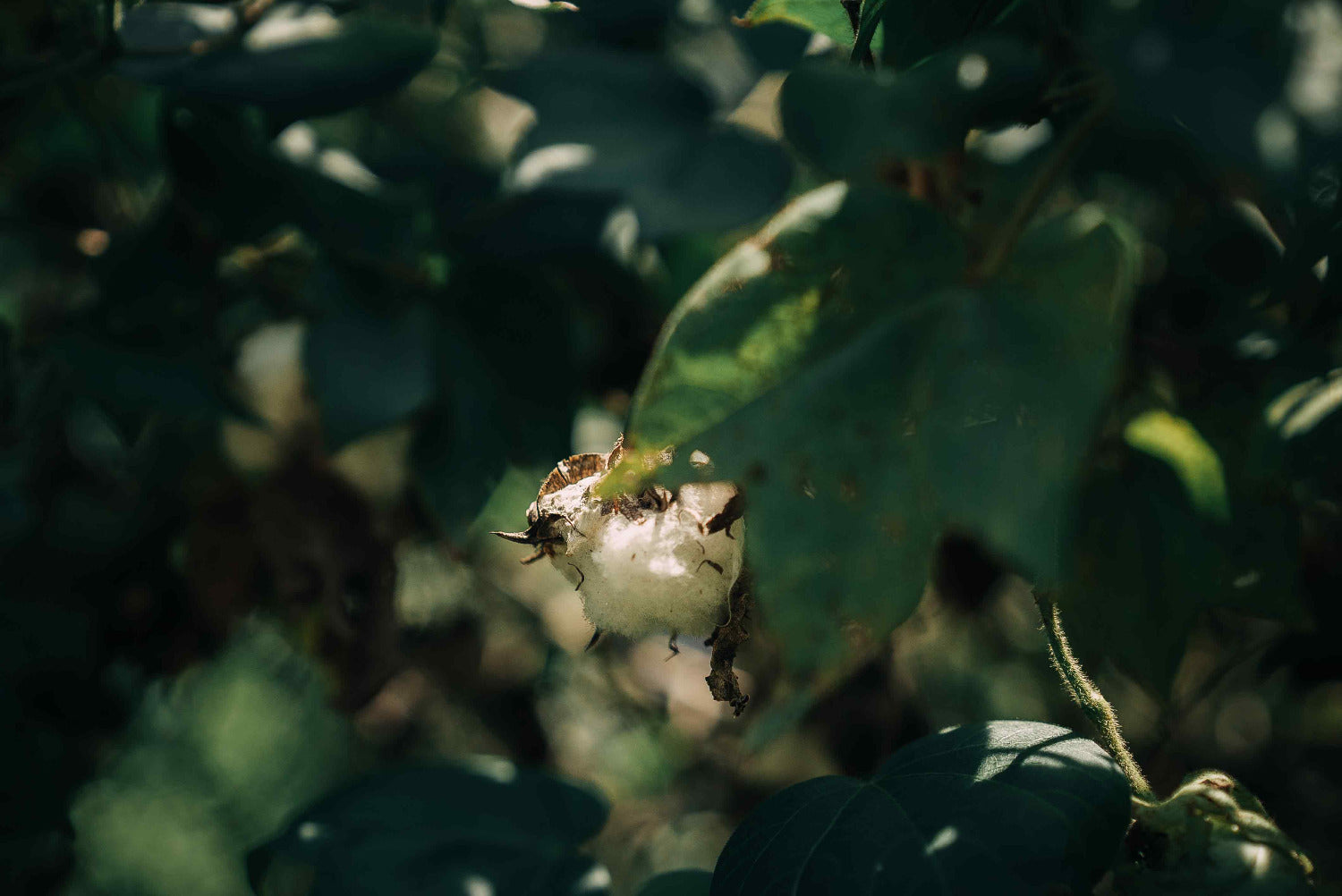
Planet
RAW Materials
Our fabrics are designed and made exclusively for RŪPAHAUS.
We use 100% raw, unbleached organic cotton planted, farmed, and harvested by responsible local growers (incl. our artisans families). Depending on region, fibres are hand-spun into weaving hanks across West, Central, and East Java.
Our Klipoh Clayware is formed from locally gathered clay using low-waste firing methods.
Planet
Plant Dyes
Our yarns are hand-dyed using natural dyes derived from plants, flowers, leaves, roots, bark, and seeds. These processes are gentle enough to be safely returned to the land.
Variation in colour and texture is natural — and valued.
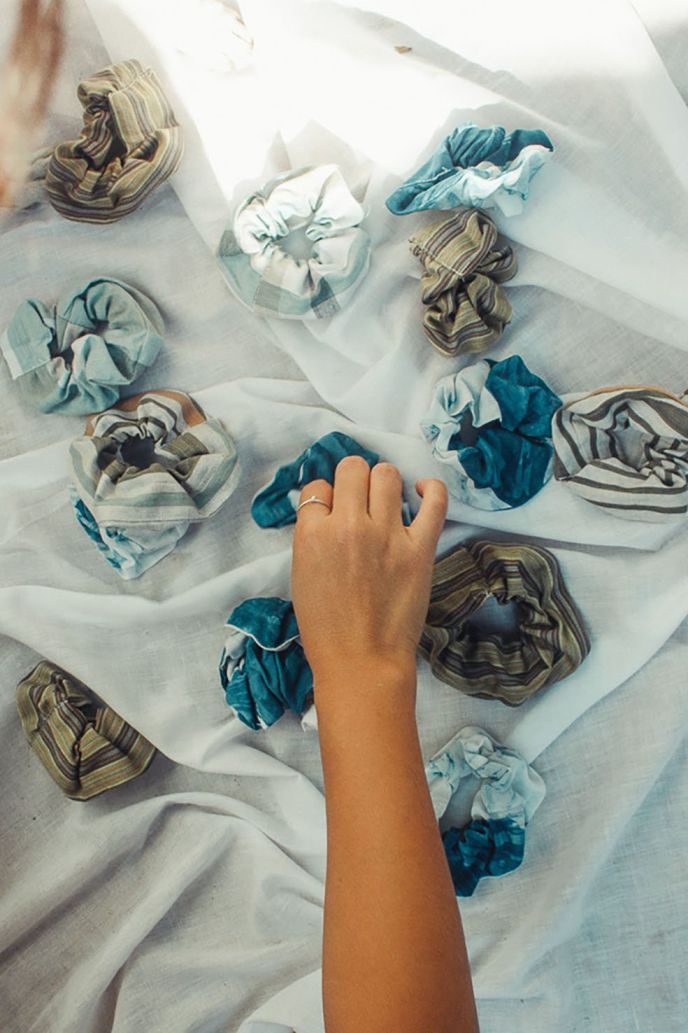
Planet
Waste Management
Leftover yarns and fabric offcuts are reused through our in-house upcycling initiative, re:RŪPA — giving materials another life rather than letting them go to waste
For us, sustainability is about care, intention, and respect — not perfection.


Planet
RAW Materials
Our fabrics are designed and made exclusively for RŪPAHAUS.
We use 100% raw, unbleached organic cotton planted, farmed, and harvested by responsible local growers (incl. our artisans families). Depending on region, fibres are hand-spun into weaving hanks across West, Central, and East Java.
Our Klipoh Clayware is formed from locally gathered clay using low-waste firing methods.
Planet
Plant Dyes
Our yarns are hand-dyed using natural dyes derived from plants, flowers, leaves, roots, bark, and seeds. These processes are gentle enough to be safely returned to the land.
Variation in colour and texture is natural — and valued.
Planet
Waste Management
Leftover yarns and fabric offcuts are reused through our in-house upcycling initiative, re:RŪPA — giving materials another life rather than letting them go to waste
For us, sustainability is about care, intention, and respect — not perfection.
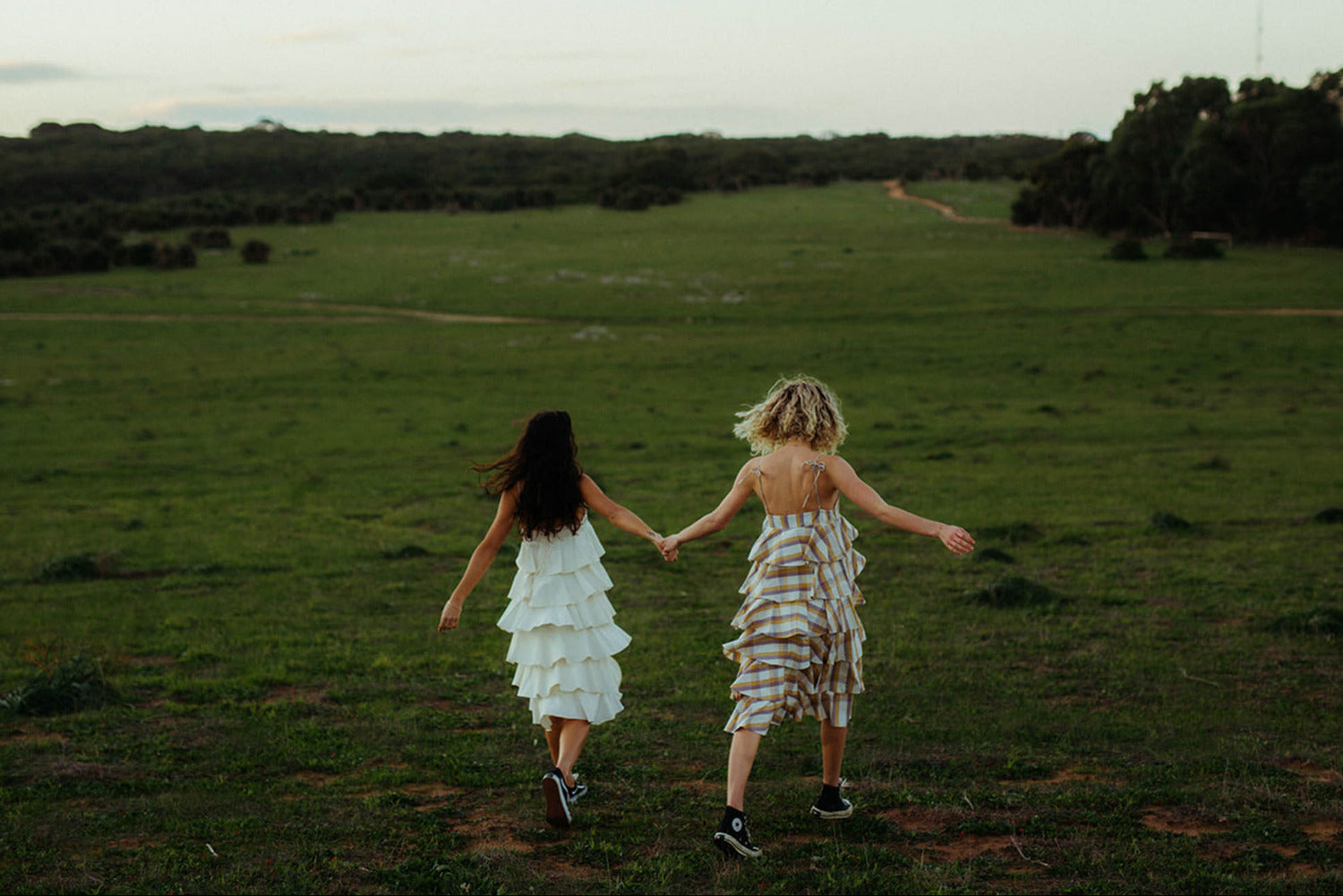
Product & Process
Designed for Longevity
Our pieces are designed to be worn often and kept for years.
Seasonless silhouettes, breathable fabrics, and durable construction support rewear, repair, and everyday use.
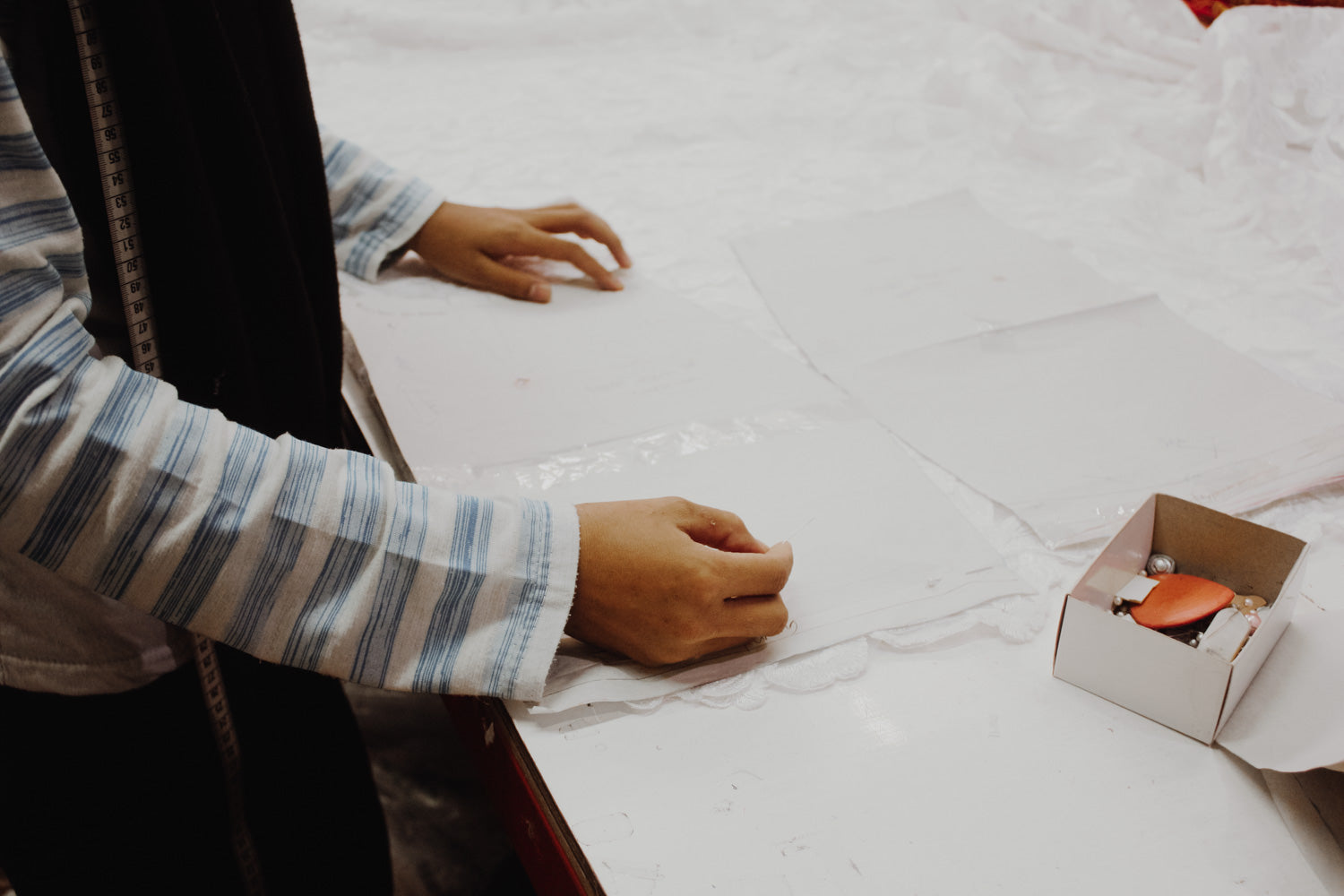
Product & Process
Slow, Small-batch Production
We produce in small quantities, creating only what feels responsible.
Each piece reflects time, variation, and the human touch — protecting both craft and the people behind it.


Product & Process
Designed for Longevity
Our pieces are designed to be worn often and kept for years.
Seasonless silhouettes, breathable fabrics, and durable construction support rewear, repair, and everyday use.
Product & Process
Slow, Small-batch Production
We produce in small quantities, creating only what feels responsible.
Each piece reflects time, variation, and the human touch — protecting both craft and the people behind it.
FAQs
What does “fair work practices” mean at RŪPAHAUS?
Fair work at RŪPAHAUS means working directly with independent artisan partners who set their own rates and timelines. We use transparent pricing and direct payment, with artisans earning on average six times above local minimum wages, supporting safe and sustainable livelihoods.
How are RŪPAHAUS materials responsibly sourced?
Our materials are sourced through small-scale, responsible practices. We use 100% raw organic cotton grown and hand-harvested by local growers, along with natural plant-based dyes and locally gathered materials, prioritising care for land, people, and traditional knowledge.
Are RŪPAHAUS products handmade?
Yes. All of our textiles and products are handmade using traditional techniques, produced in small batches. This approach allows for careful craftsmanship, natural variation, and greater respect for the people involved in making each piece.
Why do RŪPAHAUS products show variation in colour or texture?
Variation is a natural result of handmade processes, natural fibres, and plant-based dyes. Rather than forcing uniformity, we value these differences as a reflection of material honesty, time, and the human hand behind each piece.
What does “giving back” mean at RŪPAHAUS?
Giving back means reinvesting directly into the communities we work with. Each year, 5% of our revenue is returned to artisan communities, supporting long-term opportunity, continuity of craft, and shared growth.
How does small-batch production support sustainability?
Producing in small batches helps reduce waste, avoid overproduction, and protect craft rhythms. It allows us to make only what feels responsible, while maintaining quality, longevity, and care throughout the making process.



